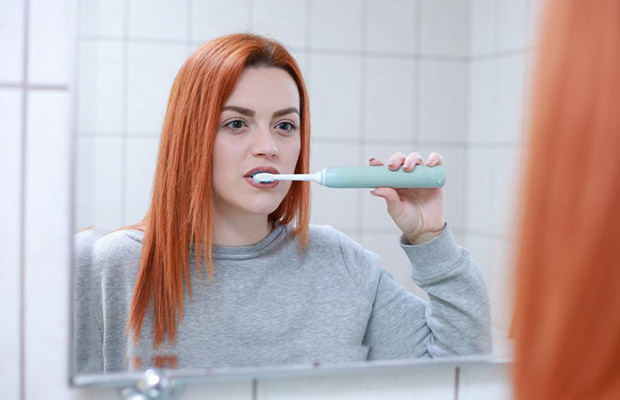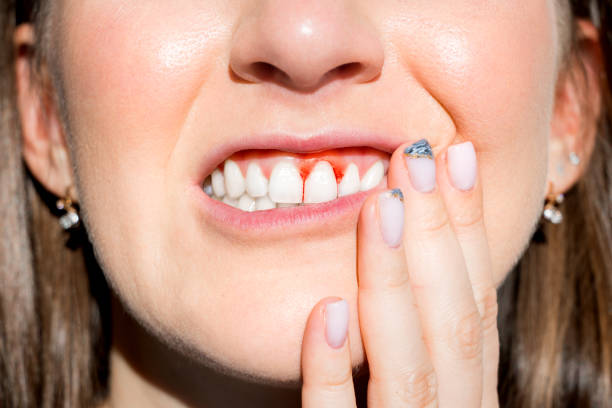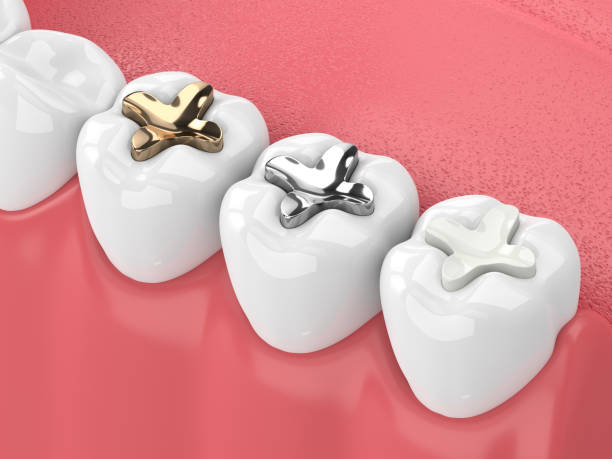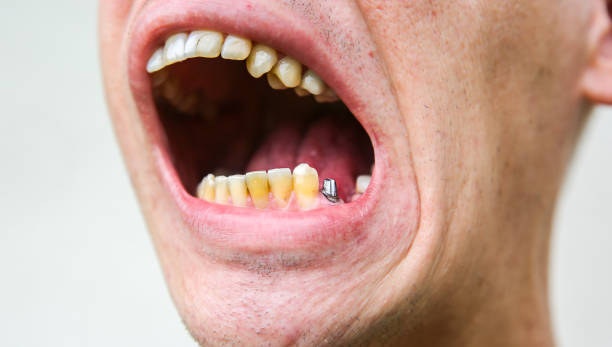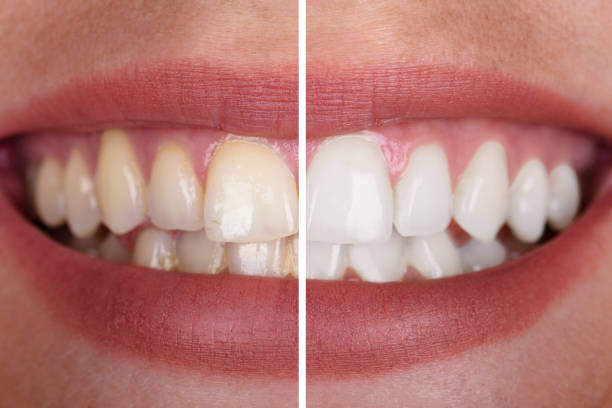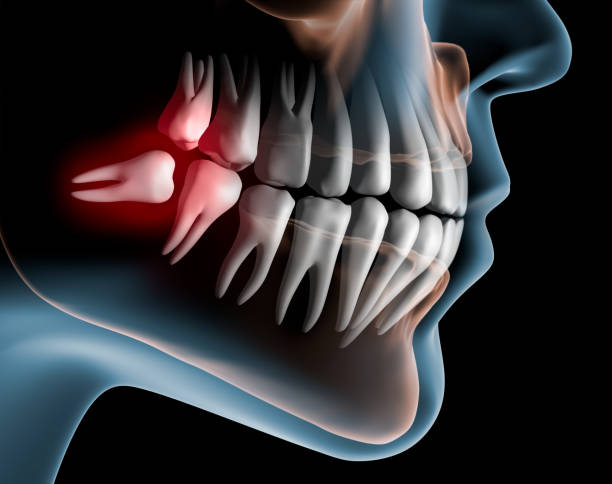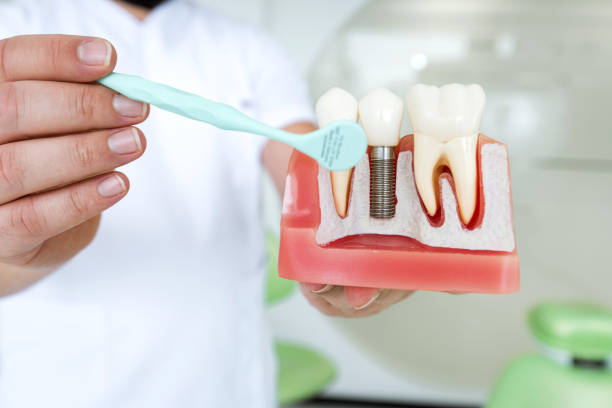You know to go to the emergency room when you accidentally sever your finger while chopping vegetables for dinner. But what happens if you bite down on something and your tooth chips? Many patients would still seek treatment in the emergency room. However, a recent article by the American Dental Association notes that many different dental emergencies can be transferred from the emergency room to the dentist’s office.
While diverting dental emergencies to an emergency dental office sounds ideal, the question quickly becomes, “what is a dental emergency requiring a dentist vs what types of emergencies require an emergency room visit?” These common dental emergencies necessitate a trip to an emergency dentist, so consider them as you make your choice.
Table of Contents
Common Dental Emergencies
Toothache
Pain is never a good sign because it can be a sign of many different health issues, including tooth decay. Additionally, while some toothaches can be managed without needing emergency care, other symptoms, such as swelling, call for prompt attention. Aspirin and other painkillers should be avoided as contact with the affected gums can cause the tissue to burn. Instead, place a cold compress on your cheek’s exterior and make an emergency dental clinic call. Following your treatment, your dentist won’t be able to emphasize enough how crucial good oral hygiene is for avoiding cavities, tooth decay, and other worse dental issues.
Chips Or Cracks
When a person bites down on something hard, uses their teeth for purposes other than biting and chewing, or experiences an accident, it can result in chips and cracks in their teeth. Additionally, teeth cracking or chipping is more likely to occur in people who grind or clench their teeth. A trip to an emergency dentist is necessary if you have a tooth that has cracked or chipped. When you have an emergency dental appointment, you should rinse any tooth fragments, keep them in a glass of milk or water, and bring them with you.
Loose Or Knocked Out Teeth
Emergency dental care is required for any facial trauma that results in teeth coming loose or falling out. To stop a tooth from falling out of its socket, it’s crucial to keep any loose teeth in its sockets. To accomplish this, lightly bite down on the tooth to secure it. When a tooth is knocked out, it’s critical to look for the missing tooth. If the missing tooth is found, only the crown should be touched and rinsed. You can keep a missing tooth by either doing one of two things: first, you can put it back in the socket and bite down like you would for a loose tooth. Second, you can keep it in a glass of milk or water like you would a chipped tooth fragment.
Soft Tissue Injury
The lips, gums, interior of the cheeks, and tongue are examples of soft tissues in the mouth. You should contact your emergency dentist if one of these structures has been hurt to get directions on where to go. In certain situations, a visit to the emergency room may be necessary, while in others, an emergency dentist may be required. Before applying pressure to stop bleeding from soft tissue injuries like lacerations, punctures, and tears, warm water should be rinsed over the area.
Missing Or Loose Dental Restoration
Although this is much more likely with temporary restorations, both permanent and temporary restorations can come undone or fall out. They both need emergency dental care, regardless of the kind of restoration. You must bring in the restoration for a long-lasting fix. If you have a temporary restoration, you might be able to hold it in place using Vaseline, chapstick, or denture adhesive until you can see your dentist.

Broken Orthodontics
Braces are durable; these metal wires and brackets are made to withstand daily wear and tear from chewing, eating, and even talking. Even then, they might still break or stick out and stab your cheeks and gums. This not only hurts, but it can also stop the alignment and straightening of teeth from progressing or even going backward. If this occurs, you might try moving the damaged wire into a more convenient position. If it’s not possible to do this, you should cover the exposed end with orthodontic wax, a tiny cotton ball, or a piece of gauze. Don’t cut the wire to stop swallowing, no matter how annoying.
Abscess
Infections in the mouth can be very serious, particularly when they are close to the tooth’s root or in the gap between the gums and teeth. If left untreated, they have the potential to spread to nearby teeth, nearby gum tissue, and even the entire body. Not sure if you have an abscess? Look for a sore, swollen spot on your gums that resembles a pimple. To prevent worsening oral health issues, contact our Toronto dental office right away for emergency treatment. For momentary relief, rinse your mouth with a mild water solution and apply ice to the sore spot.
Bleeding and Pain After a Tooth Extraction
Although some post-operative pain and bleeding are common, if they continue even an hour later, it’s time to call your dentist. Put a thick gauze pad over the extraction site in the interim and apply pressure by biting down on the gauze. Avoid drinking, eating, and sucking. Also, don’t spit, spit, or smoke.
The Basics of Preventing a Dental Emergency
Use a Mouthguard
Show your passion for sports without jeopardizing your flawless smile if you consider yourself to be one. Avoid engaging in rough play that could damage your face, mouth, or chip or knock out a tooth. Protect yourself from dental emergencies by putting on a mouthguard before you hit the court or the field.
Watch What and How You Eat
Although human teeth are sturdy, you’d be surprised at how easily they can crack or chip. Some of the things that can break otherwise strong, straight, and beautiful teeth include hard candy and tough meats. Thinking before you bite is the best way to prevent this. If you’re tempted to indulge your sweet tooth, think twice. It’s not worth the chance of chipping a tooth or getting cavities from too much sugar.
Don’t Chew on Anything Else
Many people have oral obsessions, such as the need to chew on pen caps, their nails, and other non-food items. But did you know that you can chip or crack your teeth as a result of these bad habits? By keeping your hands occupied and chewing sugarless gum to divert oral fixations, you can break these bad habits. This has the added benefit of increasing saliva production and removing bacteria.
Final Thought
Dental emergencies are generally defined as toothaches, teeth that are chipped, cracked, loose, or missing, soft tissue wounds, and missing dental restorations. If any of these dental emergencies affect you or your family, make sure to seek immediate care from an emergency dentist. While most medical emergencies necessitate a trip to the ER, most dental emergencies are simply referred back to an emergency dentist by the ER. Therefore, head straight to your neighborhood emergency dental office to save yourself time and unnecessary discomfort.


